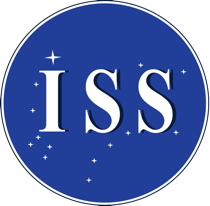
April’s Games of Science
On the 20th and 21st of April, two members of our team participated in an outreach project which promotes different ways of bringing science closer to the public, regarding their age and previous knowledge. After a long training day on how to make complex scientific concepts accessible to anyone and how to use all emotions to one’s benefit, our colleagues entered a tight competition between young researchers presenting their studies. The competition format was somewhat similar to the one “Three minute thesis” contest has, but it consisted in four different eliminatory rounds of 15seconds, 30 seconds, 90 seconds and respectively 3 minutes. After long deliberations, the jury acknowledged our team mates’ merits and awarded Alice Paun with a special prize for the way she disseminated information about her research in the Strange Quark Matter Particles domain, and allocated the first place to Florentina Pislan, who narrated about her research in the Gravitational Waves field.
May’s Activities

Late Summer School
Every year the Institute of Space Science is one of the partners of MSciTeh Summer School from Magurele, making August a particularly busy month for our group as we are involved in mentoring activities of high school students. Scholars from all over the country become little scientists for two weeks during which they have to conduct an actual scientific analysis under the guidance of researchers.
The research theme we proposed for this year was focused around solving a cocktail party problem with neural networks. By the end of the school. The students learnt how to develop their own neural network from scratch, how to search for solutions like a real researcher and how to present their results in a scientific manner!
During the summer school, our group members were invited to discuss more on the subject in two different interviews which you can also check out here.



Moving through September
“Astrophysical events, such as mergers of black holes and neutron stars or strong emitting sources such as pulsars or supernovae, can be better understood when analyzed from multiple perspectives. With the current and upcoming gravitational wave experiments, we expect to add gravitational wave (GW) signals as important messengers for analyzing these kinds of events. In this work, we present our studies on the influence of GW source parameters upon the shape of the waveform and on how we can use these new detected and characterized messengers to improve our knowledge of sources already observed in electromagnetic and with astrophysical particles. We also show the results of our multi-messenger analysis on different astrophysical sources such as quasars and X-shaped radio galaxies.”
Between 17th and 22nd of September, the IEEE Quantum Week was held in Bellevue, Washington Hyatt Regency Bellevue on Seattle’s Eastside (https://qce.quantum.ieee.org/2023/). Our Quantum wizard, also known as Maria, held a presentation entitled “Classification of Gravitational Waves Using Neural Networks on Quantum Computers” within Quantum AI Workshop. She discussed the feasibility of using quantum neural networks for classifying gravitational waveforms, using both simulators and quantum computers. The analysis was quite interdisciplinary in its nature, combining knowledge involving astrophysics, quantum information as well as quantum and classical machine learning. On one hand, we showed that the quantum classifiers and hybrid classical-quantum neural networks give maximally accurate results when tested on a simple dataset and ran on a simulator. On the other hand, we showed that quantum neural networks (ran on a simulator) can distinguish with high accuracy between noisy gravitational waves and noise, for LISA space mission specific simulated data. Moreover, we showed that adding a quantum layer to poorly performing classical neural network can highly improve its accuracy. When running any of our quantum algorithms on a real quantum computer, error minimizing algorithms need to be implemented in order to obtain a satisfying accuracy.
Another day of October
This October, dr. Laurentiu Caramete, the leader of ISS LISA Science group, was invited to give a TED Talk during TEDxBaneasa’s The Naked Truth session. He busted myths about researchers and talked about how space missions are proposed and why they are important. Hopefully, from now on, the first thing that would come to mind when referring to rocket science will not be the green big eyed creatures so many SF movies show, but the words from Laurentiu’s speech which can be watched on youtube here.

November among students
Every autumn, the University of Bucharest’s Faculty of Physics organises an outreach event particularly dedicated for high scholars and students. The event invites everyone to dare to travel through the Universe via interesting experiments and by trying to solve Physics dilemmas at the “Be a Feynman” contest. There is also a job fair where representatives of important research institutes present the their and internship opportuinities for the students.
Our group represented the Institute of Space Science at the event. Besides the natural curiosity about everything that lays above us, kids of all ages were also attracted to stop by our stand because of the guided tour of our Solar System that they were able to experience through the VR technology and the Space Quiz that helped them test their space knowledge and learn even more.
[POZE]

Winter is coming
On December 11, the ISS-LISA-Sci group was invited to the seminar “Gravitational waves: the frontier of research on the cosmos. The Italian scientific and technological distribution” that took place in the framework of the second edition in Romania of the Italian National Space Day. Dr. Laurentiu Caramete, the leader of the group, gave a presentation regarding the Romanian distribution to the LISA Space Mission.




